省宁波市2018届高三上学期期末考试英语试题附参考答案
2018年2月已经到来,离春节越来越近了。但是,作为学生的我们,尤其是高三的我们,千万不能太放松啦!期末考试已经进行,今天伊顿教育小编为大家整理了省宁波市2018届高三上学期期末考试英语试题以及参考答案,希望能为大家的复习提供帮助,做完题的同学记得核对答案哦!【省宁波市2018届高三上学期期末考试英语试题参考答案】

省宁波市2018届高三上学期期末考试英语试题
选择题部分
第一部分 听力(共两节,30分)
第一节(共5小题;每小题1.5分,7.5分)
听下面5段对话。每段对话后有一小题,从题中所给的A、B、C三个选项中选出较佳选项,并标在试卷的相应位置。听完每段对话后,你都有10秒种的时间来回答有关小题和阅读下一小题。每段对话仅读一遍。
1. How will the girl find her science textbook?
A. She will find it on her desk.
B. She will find it in her dorm.
C. She will find it on Mr. Henderson’s desk.
2. Where was Peter traveling?
A. In England. B. In Holland. C. In France.
3. What is the woman celebrating?
A. Finding a job at a restaurant.
B. Getting a degree from Harvard.
C. Finishing her studies at a cooking school.
4. What does the woman mean?
A. She has to study tonight.
B. She doesn’t like parties at all.
C. She is tired because of studying too long.
5. What does the man probably mean?
A. Don’t be overconfident.
B. The woman is sure to get the job.
C. The interview may be a waste of time.
第二节(共15小题;每小题1.5分,22.5分)
听下面5段对话或独白。每段对话或独白后有几个小题,从题中所给的A、B、C三个选项中选出较佳选项,并标在试卷的相应位置。听每段对话或独白前,你将有时间阅读各个小题,每小题5秒钟;听完后,各小题将给出5秒钟的作答时间。每段对话或独白读两遍。
听下面一段对话,回答第6和7题。
6. What was the boy supposed to do?
A. Do his homework. B. Clean the house. C. Pick up his shirt.
7. What does the boy suggest at the end of the conversation?
A. He’s proud of his effort.
B. He’s not good at housework.
C. He’s going to do well in school.
听下面一段对话,回答第8和10题。
8. How does the man feel about movie reviews?
A. He finds them ridiculous.
B. He has doubts about them.
C. He mostly agrees with them.
9. According to the woman, what qualifies a person to be an expert?
A. Logic and influence on others.
B. Years of experience in their field.
C. The ability to speak out their opinion.
10. What does the man probably do for a living?
A. He’s a teacher. B. He’s a food critic. C. He’s a judge.
听下面一段对话,回答第11至13题。
11. Why are the children at Ben’s workplace?
A. The roads are too icy to go to school.
B. The city shut the schools for the day.
C. Their mother couldn’t take them to school.
12. What is the weather like now?
A. Cold. B. Mild. C. Hot.
13. What is the probably relationship between the speakers?
A. Boss and employee. B. Teacher and parent. C. Husband and wife.
听下面一段对话,回答第14至17题。
14. How does the woman describe Eleanor Roosevelt?
A. Independent. B. Humorous. C. Shy.
15. How long should the woman’s report be?
A. Five pages long. B. Ten pages long. C. Twenty pages long.
16. What is the man’s advice?
A. Include all the facts.
B. Select the main points.
C. Choose only well-known facts.
17. Where is the man’s computer?
A. In his classroom.
B. In his roommate’s room.
C. In the woman’s apartment.
听下面一段独白,回答第18至20题。
18. What does Kenneth invention do?
A. Prevent people from falling.
B. Find people who have gotten lost.
C. Make sure old people don’t get lost.
19. Why will Kenneth be able to pay for college easily?
A. He won a lot of money.
B. He comes from a rich family.
C. Universities will pay for his school fees.
20. What will Kenneth probably do next?
A. Attend more competitions.
B. Find a way to make more of the device.
C. Perfect the computer chips in the device.
#p#副标题#e#
第二部分 阅读理解(共两节,35分)
第一节(共10小题;每小题2.5分,25分)
阅读下列短文,从每题所给的四个选项(A、B、C和D)中,选出较佳选项,并在答题卡上将该项涂黑。
A
Many high school students consider a college education useless. Therefore, they choose not to go to college. If you’re one of them, think again. Here are some reasons why you should go to college and receive a good education there.
Schools and universities are the first sources of knowledge. We take that knowledge later on to build our careers after graduation. More knowledge will be gained after you start working, but without an education, that job will not be within easy reach. Knowledge leads to knowledge.
While limited within the walls of the educational institutions, we openly explore other cultures of the world. We come to know that ours is not the only culture. Other cultures have valuable insights to share, enriching our own. Education also makes us want to travel and interact with various cultures, broadening our horizons.
When there’s a downturn(衰退)in the economy, those who attended college will be more likely to find a new job than those who only finished grade school and have a limited skills set. The more education you have, the more chances you will get to improve the quality of your life as you have a better job and earn a higher salary.
When you’re skilful and knowledgeable, you get to “rub knees” with people of similar backgrounds and tastes. It means a good education leads to excellent networking. Good networking can benefit you a lot in your later life.
A good education makes you a more interesting person. You can talk about ideas and events instead of just other people and what’s on sale in stores. An educated person doesn’t gossip, having a preference to discuss ideas and listen to what other people have to say.
21. What is the text mainly about?
A. Sources of knowledge.
B. Benefits of attending college.
C. The disadvantages of not being educated.
D. The reason why some people think college useless.
22. How does the writer develop the passage?
A. By giving examples. B. By listing reasons.
C. By following directions. D. By offering suggestions.
23. Which of the following are not mentioned by the writer about going to college?
A. Gaining more knowledge.
B. Enlarging social networks.
C. Becoming a humorous person.
D. Experiencing diverse cultures.
B
From a child I was fond of reading, and all the little money that came into my hands was ever laid out in books. Pleased with the Pilgrim’s Progress, my first collection was of John Bunyan’s works, in separate little volumes. I afterwards sold them to enable me to buy R. Burton’s Historical Collections; they were small chapmen’s books and cheap, 40 or 50 in all. My father’s little library consisted chiefly of books in religion, most of which I read, and have since often regretted that, at a time when I had such a thirst for knowledge; more proper books had not fallen in my way, since I realized that I should not be a clergyman(牧师). Plutarch’s Lives there was, in which I read abundantly, and I still think that time spent to great advantage. There was also a book of Defoe’s, called An Essay on Projects, and another of Dr. Mather’s called Essays to Do Good which perhaps gave me a turn of thinking that had an influence on some of the principal future events of my life.
This bookish preference at length determined my father to make me a printer, though he had already one son (James) of that profession. In 1717, my brother James returned from England with a press and letters to set up his business in Boston. I liked it much better than that of my father, but still have a thirst for the sea. To prevent the concerned effect of such a desire, my father was impatient to have me bound to my brother. I stood out some time but at last was persuaded, and signed the contract, when I was yet but 12 years old.. I was to serve as an apprentice(学徒)till I was 2l years of age, only I was to be allowed journeyman’s wages during the last year. In a little time I made great proficiency in the business, and became a useful hand to my brother..
I now had access to better books. An acquaintance with the apprentices of booksellers, enabled me sometimes to borrow a small one, which I was careful to return soon and clean. Often I sat up in my room reading the greatest part of the night, when the book was borrowed in the evening and to be returned early in the morning, in case it should be missed or wanted. And after some time an imaginative tradesman Mr. Matthew Adams who had a pretty collection of books and who visited our printing house frequently took notice of me, invited me to his library, and very kindly lent me such books as I choose to read.--From Autobiography of Benjamin Franklin
24. Which of the following does NOT contribute to the author’s change of thought?
A. Pilgrim’s Progress B. Plutarch’s Lives
C. An Essay on Projects D. Essays to Do Good
25. What was the reason that his father made him a printer?
A. His father thought he had a gift for painting.
B. He liked the printing business better than any other things.
C. His brother, as a printer, promised to take good care of him.
D. His father worried that his longing for sea might affect his future.
26. What does the underlined sentence “I now had access to better books.” in Paragraph 3 mean?
A. My desire for books was completely satisfied.
B. I could afford the books that I really preferred.
C. My spare time was mostly occupied with reading
D. I could read more books which I was interested in.
#p#副标题#e#
C
You know the feeling –you have left your phone at home and feel anxious, as if you have lost your connection to the world. “Nomophobia”(无手机恐惧症)affects teenagers and adults alike. You can even do an online test to see if you have it. Last week, researchers from Hong Kong warned that nomophobia is infecting everyone. Their study found that people who use their phones to store, share and access personal memories suffer most. When users were asked to describe how they felt about their phones, words such as “hurt” (neck pain was often reported) and “alone”
predicted higher levels of nomophobia.
“The findings of our study suggest that users regard smartphones as their extended selves and get attached to the devices,” said Dr. Kim Ki Joon. “People experience feelings of anxiety and unpleasantness when separated from their phones.” Meanwhile, an American study shows that smartphone separation can lead to an increase in heart rate and blood pressure.
So can being without your phone really give you separation anxiety? Professor Mark Griffiths, psychologist and director of the International Gaming Research Unit at Nottingham Trent University, says it is what is on the phone that counts –the social networking that creates Fomo (fear of missing out).
“We are talking about an internet-connected device that allows people to deal with lots of aspects of their lives,” says Griffiths. “You would have to surgically remove a phone from a teenager because their whole life is ingrained in this device.”
Griffiths thinks attachment theory, where we develop emotional dependency on the phone because it holds details of our lives, is a small part of nomophobia. For “screenagers”, it is Fomo that creates the most separation anxiety. If they can’t see what’s happening on Snapchat or Instagram, they become panic-stricken about not knowing what’s going on socially. “But they adapt very quickly if you take them on holiday and there’s no internet,” says Griffiths.
27. Which of the following may Dr. Kim Ki Joon agree with?
A. We waste too much time on phones.
B. Phones have become part of some users.
C. Addiction to phones makes memories suffer.
D. Phones and blood pressure are closely linked.
28. According to Griffiths, we get nomophobia because ________.
A. we are accustomed to having a phone on us
B. we need our phones to help us store information
C. we worry we may miss out what our friends are doing
D. we fear without phones we will run into a lot of trouble
29. Which of the following phrase has the closest meaning to the underlined phrase “ingrained in” in Paragraph 4?
A. relied on B. opposed to C. approved of D. determined by
30. Where can you probably find the above passage?
A. In a research report. B. In a fashion brochure.
C. In a science textbook. D. In a popular science magazine.
第二节(共5小题;每小题2分,10分)
根据短文内容,从短文后的选项中选出能填入空白处的较佳选项。选项中有两项为多余选项。
Do you usually feel you're working hard but still can’t reach your study goals? Here are some quick tips to help you study better.
♦ Study with a partner or in groups
Rather than living in a cave with your nose in the books all day, grab a friend from your class and study with him. 31
♦ Step into your teacher’s shoes
Ask yourself “If I were the teacher, what would I put on the test?” You have probably experienced a lot of your teacher’s tests and quizzes by now. 32 Teachers have specific types of information that they want you to learn. The structure is usually the same.
♦ Paint pictures on the paper
You can build your knowledge structure in the form of pictures. It’s harder to remember each piece of a puzzle individually than it is to recall the completed picture. 33
♦ 34
A hungry brain is an ineffective one. Your brain needs the proper nutrients to keep it going. Because of this, what you eat and drink also plays a huge role in how sharp your brain is. Healthy foods provide nutrients to your brain cells to keep them energized.
♦ Take breaks to relax your brain
Your brain is like a muscle. It can be also tired if you overwork it 35 If you divide studying into 15 to 30 minutes blocks with quick breaks in between, your brain will feel refreshed, grateful and ready for the next challenge you throw at.
A. Feed your brain from time to time.
B. It needs exercise to make it stronger.
C. Relax your brain by eating and drinking.
D. You’d better learn from them for the next test.
E. It’s necessary to have a long holiday and have nice food.
F. Find ways to connect what you are learning to real life or to other concepts.
G. Group studying helps you to engage and process the information more deeply.
#p#副标题#e#
第三部分:语言运用(共两节,45分)
第一节:完形填空(共20小题;每小题1.5分;30分)
阅读下面短文,掌握其大意,然后从36~55各题所给的四个选项(A、B、C和D)中,选出较佳选项,并在答题纸上将该选项标号涂黑。
An old woman was siting outside an ice-cream shop with dirty clothes and rough hair. She 36 and walked, but it seemed quite 37 , her legs shivering(颤抖)and her eyes showing deep sorrow of being left alone and homeless.
I didn’t 38 an ice-cream, so I was outside the shop, 39 her, while my family went in. Her legs were weak. I saw her difficulties and came up to her with 10 dollars in my 40 and handed it over to her. She was so 41 and started blessing me 42 . I wanted to talk with her as that seemed very important 43 . I asked her about her 44 . She said there was no one, and that all died one by one, with tears in her eyes.
“Where does she live?” I 45 . The response was quite 46 . I noticed her “luggage”, two plastic bags, containing her 47 . At this point, I gave her my 48 , thin stole(披肩). It was bright yellow and looked new. But she was not ready to accept 49 . She was worried about my feeling cold for few minutes before I got home. She finally 50 the stole and covered herself, when I insisted. She was 51 me even more. I checked my bag and kept giving anything that I thought she could use. How grateful she was! At this moment, I saw change in her 52 state of mind. By this time, she seemed calm and 53 . And so did I. The look of 54 and hopelessness was transformed. She looked at the people who passed by us with more 55 in that moment.
I realized it was my small kind act that had counted a lot to the old woman.
36. A. got out B. got over C. got off D. got up
37. A. funny B. interesting C. difficult D. attractive
38. A. want B. touch C. serve D. taste
39. A. finding B. leading C. ignoring D. watching
40. A. pocket B. bag C. hand D. luggage
41. A. thankful B. angry C. strange D. cautious
42. A. slowly B. anxiously C. instantly D. angrily
43. A. as well B. in all C. so well D. at all
44. A. friend B. habit C. career D. family
45. A. replied B. wondered C. claimed D. stated
46. A. different B. serious C. obvious D. weak
47. A. belongings B. goods C. clothes D. books
48. A. smooth B. warm C. special D. rough
49. A. one B. them C. those D. it
50. A. brought B. received C. took D. carried
51. A. calming B. supporting C. helping D. blessing
52. A. emotional B. common C. conventional D. unique
53. A. convenient B. content C. appropriate D. available
54. A. desperation B. expression C. confusion D. devotion
55. A. doubt B. trust C. regret D. confidence
非选择题部分
第三部分:语言运用(共两节,45分)
第二节(共10小题;每小题1.5分,15分)
阅读下面材料,在空白处填入适当的内容(1个单词)或括号内单词的正确形式。
One of the effective ways to make foreign language class interesting is using educational games, which usually provide fun and increase motivation.
That games are fun seems to be universally 56 (accept). Sometimes games are 57 welcome break from the usual routine of the language class. Therefore, some teachers are enthusiastic about games as a teaching device and often turn 58 games. To these teachers, playing games is a very good form to help achieve an active atmosphere 59 students can acquire knowledge as well as have fun.
60 (game) increase motivation as well. As 61 (know), learning motivation promotes students to learn for the purpose of achieving some goals. The 62 (strong) motivation a learner has, the more time he or she will spend learning a second language. Games are motivating 63 they are amusing and at the same time challenging. In playing games, students get highly motivated and 64 (absorb) in order to win, to score points or to beat their competitors. They use the target language 65 (conscious) in the process of playing games. Learning is hard work, but games help students keep the effort of learning.
第四部分 写作(共两节,40分)
第一节:应用文写作(15分)
假定你是李华,得知你的外教Mr. Smith当选为宁波市杰出外籍人才(Outstanding Foreign Talents of Ningbo);你代表班级给他写一封信表示祝贺。内容包括:
1. 祝贺他光荣当选;
2. 表达赞赏之情;
3. 邀请他参加庆祝派对。
注意:
1. 词数80词左右;2. 可以适当增加细节,以使行文连贯。
Dear Mr. Smith,
Yours sincerely
Li Hua
第二节:读后续写(25分)
阅读下面短文,根据所给情节进行续写,使之构成一个完整的故事。
The big Town Hall clock was striking midnight when Frank began to cross the bridge. The dark night air was cold and wet, and the street lamps gave little light. Frank was anxious get hand and his footsteps rang loudly on the silent night.
When he reached the middle of the bridge, he thought he could hear someone coming near behind him. He looked back but could see no one. However the sound continued, and Frank began walking more quickly. Then he slowed down again, thinking there was nothing to fear in a town as quiet as this. The short, quick steps grew louder until they seemed very near.
Frank found it impossible not to turn round. As he did so, he caught sight of a human form coming toward him. After reaching the other side of the bridge, Frank stopped and pretended to look down at the water. From the corner of his eyes he could now make out the form of a man dressed in a large overcoat. A hat was pulled down over his eyes and very little of his face could be seen.
As the man came near, Frank turned towards him and said something about the weather in an effort to be friendly. The man did not answer but asked roughly where Oakfield House was. Frank pointed to a big house in the distance and the stranger continued his way.
Then Frank wondered why the stranger had wanted to find Oakfield House at such an hour. He knew that the person who lived there was very rich. Almost without realizing what he was doing, Frank began following the stranger quietly.
The man was soon outside the house and Frank saw him look up at the windows. A light was still on, and the man waited until it went out. When about half an hour had passed, Frank saw him climb noiselessly over the wall and heard him drop onto the ground at the other side.
注意:
1. 所续写短文的词数应为150左右;
2. 应使用5个以上短文中标有下划线的关键词语;
3. 续写部分分为两段,每段的开头语已为你写好;
4. 续写完成后,请用下划线标出你所使用的关键词语。
Paragraph 1:
Now Frank knew what the man wanted to do.
Paragraph 1:
Frank couldn’t just stand in the dark and wait.
- 热门课程
- 热门资讯
- 热门资料
- 热门福利
-
 黄河小班课人数多吗?教学效果怎么样?黄河小班课之前就有家长和学生想要了解过,今天为了满足大家的要求,小编就来好好给大家解答一下关于黄河小班课的一些内容,让大家能够更加方便地做出选择。 一、黄河小班课人数多吗? 黄河小班课的人数控制得挺讲究,既不是那种三五个人的微型小组,也不会像其他学校那样挤着四五十个人,一个班大概在6到15人
黄河小班课人数多吗?教学效果怎么样?黄河小班课之前就有家长和学生想要了解过,今天为了满足大家的要求,小编就来好好给大家解答一下关于黄河小班课的一些内容,让大家能够更加方便地做出选择。 一、黄河小班课人数多吗? 黄河小班课的人数控制得挺讲究,既不是那种三五个人的微型小组,也不会像其他学校那样挤着四五十个人,一个班大概在6到15人 -
 “白驹过隙”怎么读?到底有什么含义?“白驹过隙” 是形容时光的经典表达,可你真能笃定 “驹” 字读 “jū” 而非 “jú”?而且 “白驹” 为何是 “白色的小马”,“过隙” 又特指什么缝隙? 一、“白驹过隙”怎么读? “白驹过隙”的正确读音是bái jū guò xì,“白驹”指白色的骏马,常被引申为太阳的光芒或飞速流逝的时
“白驹过隙”怎么读?到底有什么含义?“白驹过隙” 是形容时光的经典表达,可你真能笃定 “驹” 字读 “jū” 而非 “jú”?而且 “白驹” 为何是 “白色的小马”,“过隙” 又特指什么缝隙? 一、“白驹过隙”怎么读? “白驹过隙”的正确读音是bái jū guò xì,“白驹”指白色的骏马,常被引申为太阳的光芒或飞速流逝的时 -
 博大单招在文化课提升方面优势如何?补习效果好吗?单招相信第一次接触的家长和同学们有很多问题都不了解,很多家长为了让孩子更好地学习就去选择一个合适的单招补习,那么博大单招在这方面的优势到底怎么样?能不能帮助孩子更好地提升呢?今天我们就来一起好好了解一下。 一、博大单招在文化课提升方面优势如何? 博大单招在文化课提升这方面那真的是研究得透透的
博大单招在文化课提升方面优势如何?补习效果好吗?单招相信第一次接触的家长和同学们有很多问题都不了解,很多家长为了让孩子更好地学习就去选择一个合适的单招补习,那么博大单招在这方面的优势到底怎么样?能不能帮助孩子更好地提升呢?今天我们就来一起好好了解一下。 一、博大单招在文化课提升方面优势如何? 博大单招在文化课提升这方面那真的是研究得透透的 -
 “琨玉秋霜”怎么读?到底有什么含义?“琨玉秋霜” 中的“玉” 和 “秋霜” 都是自带高洁感的意象,可 “琨” 字到底读 “kūn” 还是 “hún”?单看字面像在描绘玉石与秋霜的景致,却猜不透为何要将这两种事物组合,更不清楚它的核心指向是写景、咏物还是喻人。今天咱们先把读音校准,再拆解这四字里藏着的纯粹与庄重。 一、“琨玉秋霜”
“琨玉秋霜”怎么读?到底有什么含义?“琨玉秋霜” 中的“玉” 和 “秋霜” 都是自带高洁感的意象,可 “琨” 字到底读 “kūn” 还是 “hún”?单看字面像在描绘玉石与秋霜的景致,却猜不透为何要将这两种事物组合,更不清楚它的核心指向是写景、咏物还是喻人。今天咱们先把读音校准,再拆解这四字里藏着的纯粹与庄重。 一、“琨玉秋霜”
-
 2022高考英语基础知识点!西安伊顿老师带你了解!2022高考英语基础知识点!西安伊顿老师带你了解!高中的英语是一个需要长期积累以及记忆的科目,在高考中只有针对这些知识进行一定的了解和积累,才可以在考试中取得好成绩。针对这种情况,小编请到了西安伊顿老师来给大家总结归纳一下关于高考英语基础知识点的记忆内容,希望对大家有所帮助。对于英语还是需要靠日
2022高考英语基础知识点!西安伊顿老师带你了解!2022高考英语基础知识点!西安伊顿老师带你了解!高中的英语是一个需要长期积累以及记忆的科目,在高考中只有针对这些知识进行一定的了解和积累,才可以在考试中取得好成绩。针对这种情况,小编请到了西安伊顿老师来给大家总结归纳一下关于高考英语基础知识点的记忆内容,希望对大家有所帮助。对于英语还是需要靠日 -
 关于“呐喊与行动那个更重要”的辩论稿写作指导!一直以来,辩论稿的写作都是大家司空见惯的,但是也是很多同学容易忽视的。现在的语文作文考察的范围和广度越来越大,涉及到的文体也越来越多,因此大家在备考语文作文的时候,还是要增加自己的知识面,增加自己的见识。辩论稿大家见得比较多,但是在语言文字上以及结构上的学习,还是非常值得探究的,下面小编给大家分享了一则辩论稿,大家可以练习一下。
关于“呐喊与行动那个更重要”的辩论稿写作指导!一直以来,辩论稿的写作都是大家司空见惯的,但是也是很多同学容易忽视的。现在的语文作文考察的范围和广度越来越大,涉及到的文体也越来越多,因此大家在备考语文作文的时候,还是要增加自己的知识面,增加自己的见识。辩论稿大家见得比较多,但是在语言文字上以及结构上的学习,还是非常值得探究的,下面小编给大家分享了一则辩论稿,大家可以练习一下。 -
 “直播带货”有关的作文写作指导!立意和审题指导!高中的作文写作更多的是来自于社会现象的思考,或者生活的思考,所以高中的同学在写作文的时候可以从生活细节入手,寻找素材,因为任何题目都是取之于生活,进而引发的一系列的思考行为。本次伊顿教育小编给大家分享的这篇作文也是一个社会现象的评述,材料内容是关于“直播带货”,这个大家都是不陌生的,而且有的同学也是参与者,所以对于此也是非常的熟悉的。下面我们可以来看看这篇作文写作的指导。
“直播带货”有关的作文写作指导!立意和审题指导!高中的作文写作更多的是来自于社会现象的思考,或者生活的思考,所以高中的同学在写作文的时候可以从生活细节入手,寻找素材,因为任何题目都是取之于生活,进而引发的一系列的思考行为。本次伊顿教育小编给大家分享的这篇作文也是一个社会现象的评述,材料内容是关于“直播带货”,这个大家都是不陌生的,而且有的同学也是参与者,所以对于此也是非常的熟悉的。下面我们可以来看看这篇作文写作的指导。 -
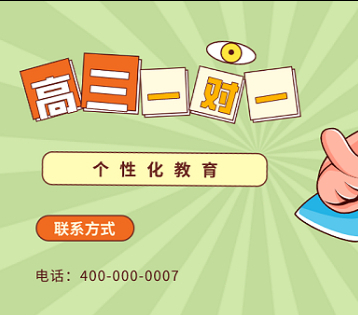 2021年9月山水联盟高三开学联考数学试卷及答案(原版)!2021年9月山水联盟高三开学联考已经结束,伊顿教育小编给大家整理了本次联考的数学试卷以及答案,各位相关的小伙伴可以参考一下。对于高三的学习,小编建议大家在每一次的考试之后,都能够仔细的分析一下自己的失分点,对于自己没有掌握的知识点可以尽早的掌握。
2021年9月山水联盟高三开学联考数学试卷及答案(原版)!2021年9月山水联盟高三开学联考已经结束,伊顿教育小编给大家整理了本次联考的数学试卷以及答案,各位相关的小伙伴可以参考一下。对于高三的学习,小编建议大家在每一次的考试之后,都能够仔细的分析一下自己的失分点,对于自己没有掌握的知识点可以尽早的掌握。










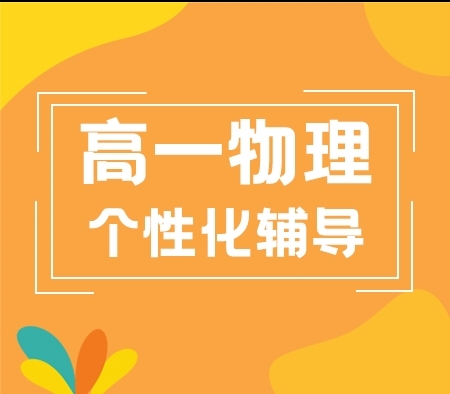
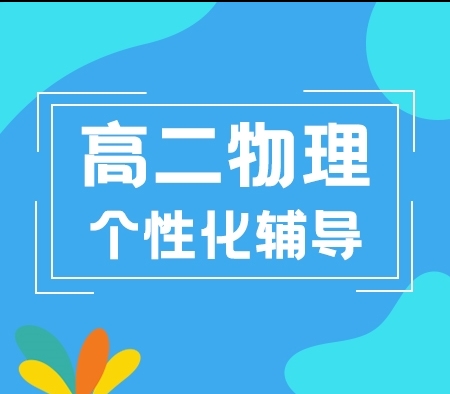
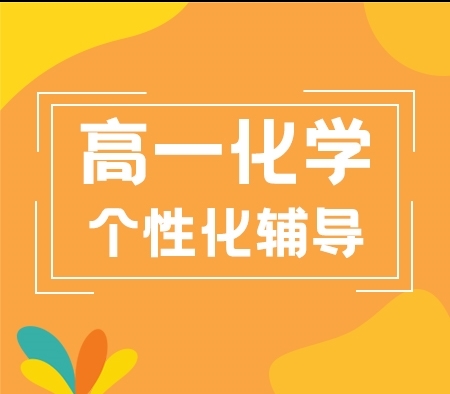
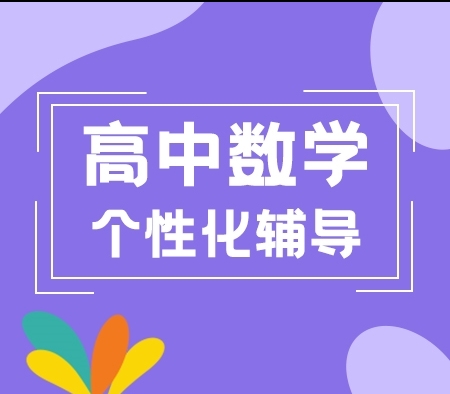




 All right reserved
All right reserved
